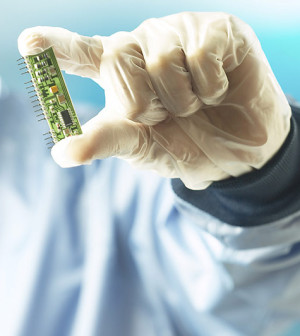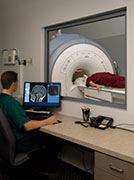- The Best Time of Day to Drink Bone Broth to Maximize Health Benefits
- 8 Ways to Increase Dopamine Naturally
- 7 Best Breads for Maintaining Stable Blood Sugar
- Gelatin vs. Collagen: Which is Best for Skin, Nails, and Joints?
- The Long-Term Effects of Daily Turmeric Supplements on Liver Health
- Could Your Grocery Store Meat Be Causing Recurring UTIs?
- Are You Making This Expensive Thermostat Error This Winter?
- Recognizing the Signs of Hypothyroidism
- 10 Strategies to Overcome Insomnia
- Could Artificial Sweeteners Be Aging the Brain Faster?
Study Questions FDA Warning Against CT Scans for Those With Heart Devices


Despite a U.S. Food and Drug Administration warning six years ago, a new study finds that there appears to be no danger from CT scans for people with implanted pacemakers or defibrillators.
In 2008, the FDA cautioned that the radiation used in CT scans could cause these devices to malfunction. Specifically, the agency warned that the scans might cause unintended shocks from internal defibrillators or cause pacemakers to change the heart’s pumping rate, making it too fast or too slow.
One researcher involved with the study questioned whether the warning was necessary.
“If you talk to radiologists, they do hundreds of thousands of CT scans, and they can’t remember any of them going wrong,” said lead researcher Dr.
Timm-Michael Dickfeld, an assistant professor of medicine in the division of cardiology at the University of Maryland School of Medicine.
In his study of more than 500 people, there were no cases of CT scans causing hearts to beat too fast or too slow, or of patients who needed their devices reset or who got unneeded shocks from implanted defibrillators, Dickfeld said.
“We didn’t have any evidence that the CT created any significant problems,” he said, and he hopes the FDA will take this study into account if it ever reevaluates its warning.
The study disclosed that Dickfeld receives consulting and grant support from Biosense Webster and grant support from General Electric. Both companies make medical devices. No other study authors reported relevant financial interests.
The new report was published online Feb. 26 in the Journal of the American College of Cardiology.
One expert agreed that CT use does appear safe for patients with implanted heart devices.
“CT imaging has been traditionally considered to be safe in patients with devices used for cardiac rhythm management, including permanent pacemakers and implantable defibrillators,” said Dr. Gregg Fonarow, a professor of cardiology at the University of California, Los Angeles, and a spokesman for the American Heart Association.
“These findings add to the reported experience that CT imaging does not appear to interfere with implanted device programming or function, nor [does it] lead to adverse clinical events,” he said.
The FDA, however, continues to stand by its warning.
Commenting on the new study, agency spokeswomen Susan Laine said, “The FDA’s 2008 safety alert is our latest on this issue. We continue to keep abreast of available information, and if we determine that different recommendations are warranted, we will communicate them publicly.”
For the study, Dickfeld’s team looked at 516 CT scans from two hospitals done between July 2000 and May 2010. Of these scans, 332 patients had implanted defibrillators and 184 had implanted pacemakers.
None of the patients died, the researchers found. And none developed a rapid heartbeat, causing the scan to be stopped. In addition, none of the patients had to be admitted to the hospital or have their heart device reset or repositioned, and none of the defibrillators gave a patient an inappropriate shock.
There were no changes in the performance of these devices definitively linked to CT scans, and no harm to patients, the study found.
The findings suggest that CT scans indicated for a patient’s condition should not be delayed or cancelled because the patient has an implanted heart device, the researchers concluded.
More information
For more about CT scans, visit the U.S. National Library of Medicine .
Source: HealthDay
Copyright © 2026 HealthDay. All rights reserved.










